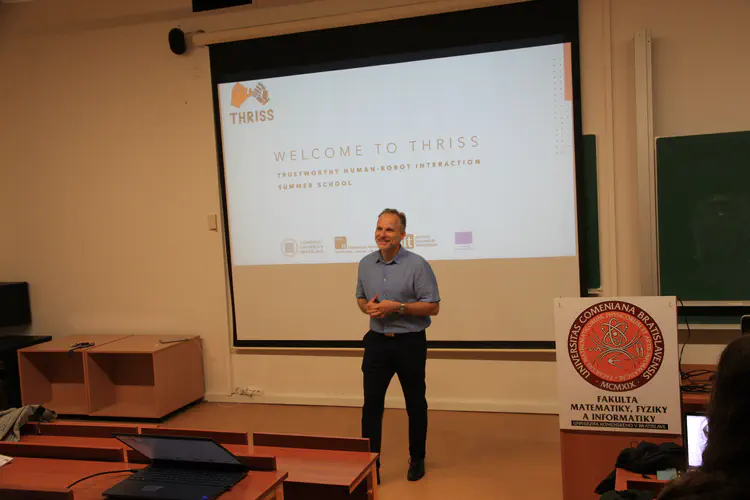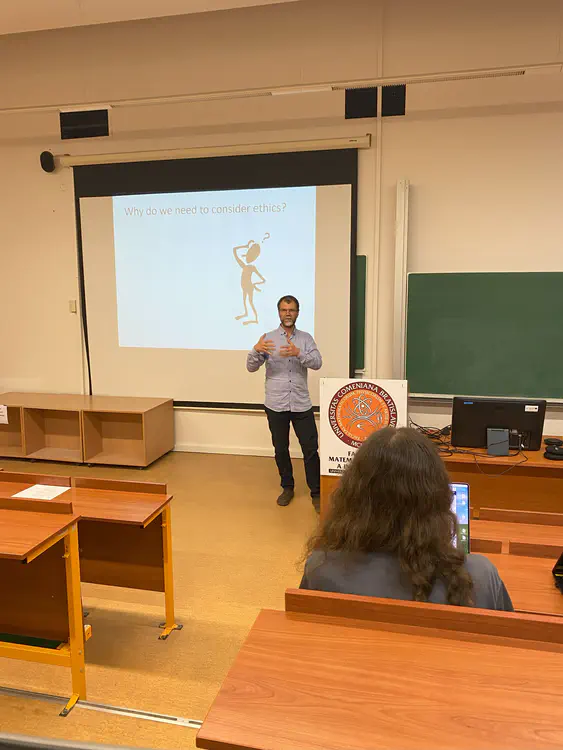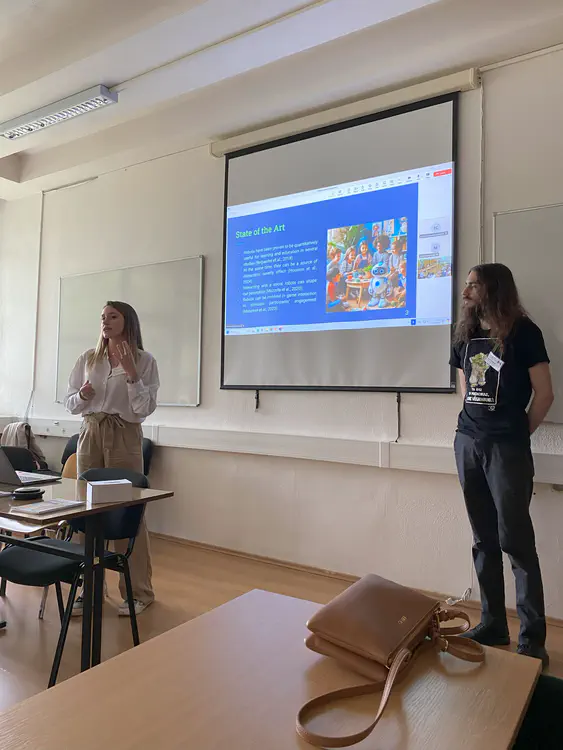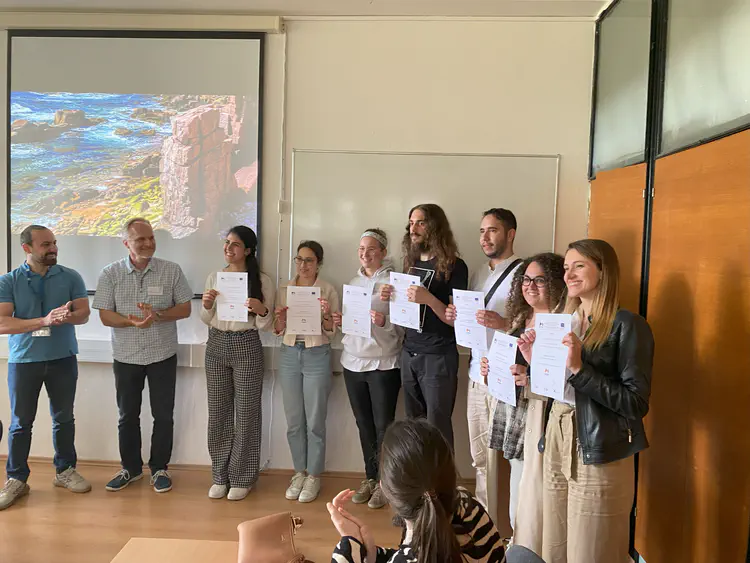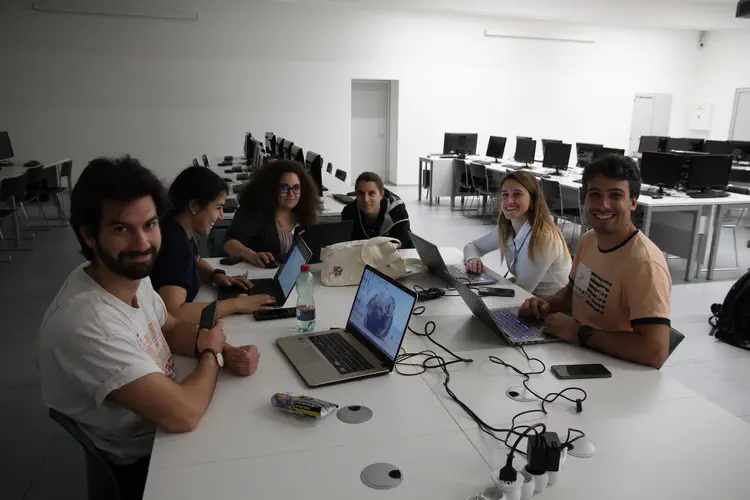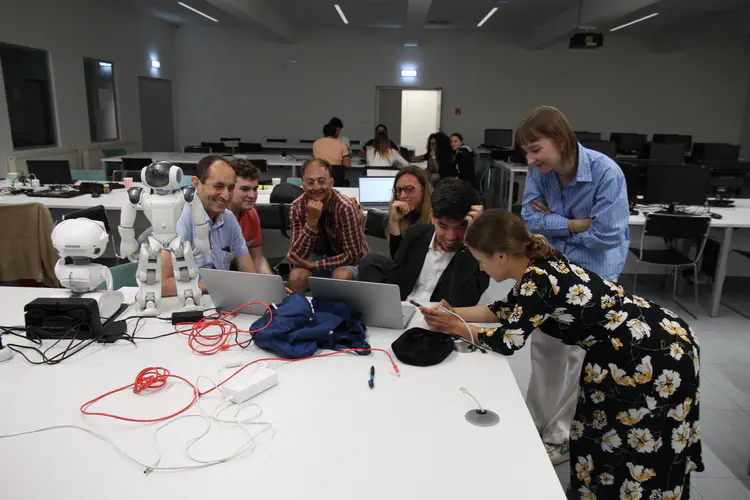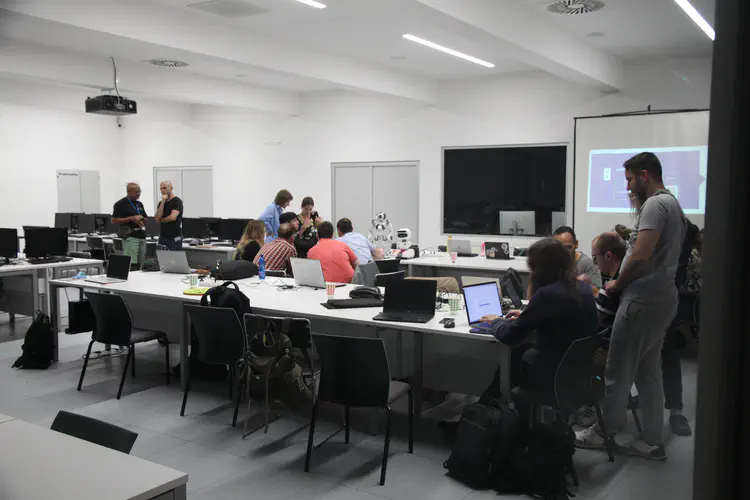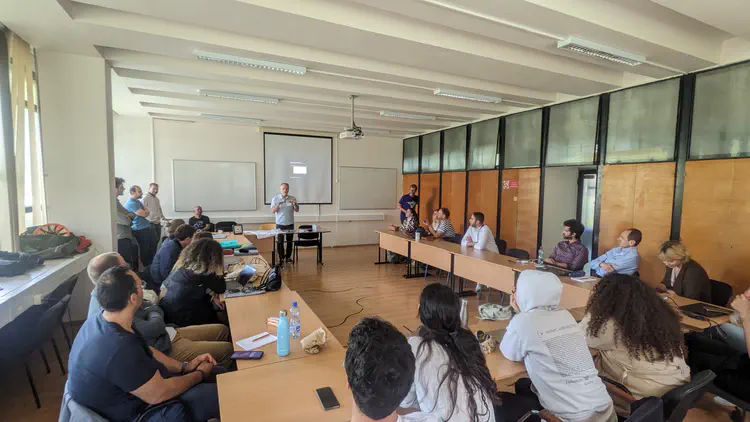Trustworthy Human-Robot Interaction Summer School (THRISS)
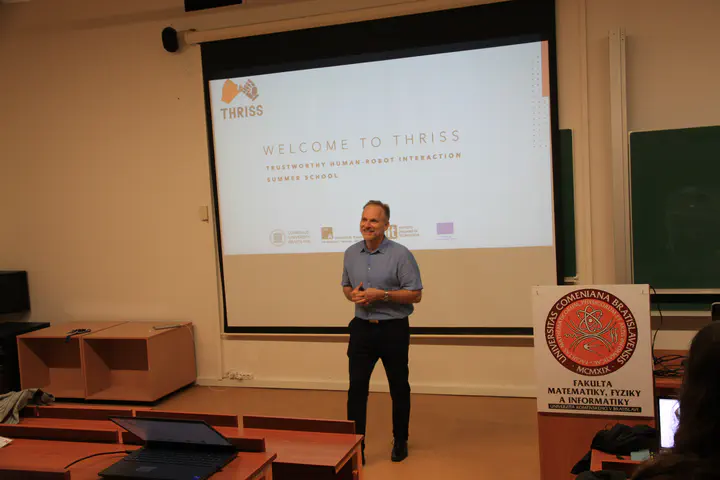
Last month, the Trustworthy Human-Robot Interaction Summer School (THRISS) brought together participants from diverse academic backgrounds for five days of intensive learning and collaboration in the fields of cognitive science and robotics. Held under the TERAIS project with support from Slovak Society for Cognitive Science, the summer school hosted doctoral and master students from various disciplines, including robotics, engineering, computer science, social psychology, and cognitive neuroscience, to explore robotic cognitive models designed to foster trustworthy social interactions with humans. THRISS aimed to enhance understanding and foster collaboration in the multidisciplinary domains of cognitive robotics and human-robot interaction. By promoting interdisciplinary approaches and hands-on learning experiences, the event sought to advance research and development in creating robots capable of trustworthy social interactions with humans.
Igor Farkaš, the TERAIS project coordinator, opened the summer school, welcoming all participants and setting the stage for the upcoming days. The lineup of distinguished speakers began with Pablo Barros (Sony Corporation, Belgium) who, with presentation “Towards Modeling Social Components of Trust in Competitive and Cooperative Game-Based Interactions”, discussed how contextual games like card games and RPGs offer rich environments for studying social constructs such as empathy, rivalry, trust, engagement, and competitiveness. Following Barros, Shelly Levy Tzedek (Ben Gurion University, Israel) delivered a lecture “Trusting Social Robots in Rehabilitation: Participatory Design and Ethical Considerations”, reviewing studies that collected qualitative data from main stakeholders in the design process and discussed how trust in rehabilitation contexts differs from other human-robot interaction scenarios. In the afternoon, Andrej Lúčny (Comenius University in Bratislava, Slovakia) conducted a workshop titled “Interacting with the NICO Robot: Neuro-Inspired Companion” which allowed students to design and tune interactive systems using deep-learning models.
Continuing with the topic of neuro-inspired aspects to robotics, Matthias Kerzel (University of Hamburg, Germany) discussed the development and use of neuro-inspired robotic platforms NICO and NICOL and their applications in developmental robotics, HRI, and explainable AI during his lecture “Developing Research Platforms for Neuro-Cognitive Robotics”. Kerzel’s lecture was followed by a workshop by Bipin Indurkhya (Jagiellonian University, Poland) titled “Programming for Trust: How Robot Behavior Influences Human Confidence”, exploring trust in human-robot interactions through theoretical overviews and practical sessions, where participants designed and tested robot behaviours. Viktor Kocur (Comenius University in Bratislava, Slovakia) concluded the day with a workshop on “Leveraging Binocular Vision and Deep Learning for 3D Scene Understanding with NICO” where students utilised NICO’s binocular vision combined with deep learning to enable 3D scene understanding.
The third day featured two different workshops, first by Martin Takáč (Comenius University in Bratislava, Slovakia) titled “AI Ethics: Challenges and Use-Cases”, who addressed ethical and societal aspects of AI technologies through real-world use cases and interdisciplinary solutions, and a second workshop by Carlo Mazzola and Luca Garello (Italian Institute of Technology, Italy). Their session, “Sensorized Devices for Human-Aware Human-Robot Interaction” provided hands-on experience with leveraging different sensors to develop robots’ abilities to interact with humans and the shared environment.
The final day included a lecture by Alessandra Sciutti (Italian Institute of Technology, Italy) titled “A Developmental Perspective on Cognitive Robotics for Interaction”. Sciutti focused on cognitive robotics and how to create robots that understand human needs, desires, and intentions while being transparent in their behaviour. Throughout the five day event, students also presented their research, receiving valuable feedback from peers and experts. THRISS 2024 was a resounding success, providing a platform for students and experts to collaborate, innovate, and advance the field of trustworthy human-robot interactions. The combination of lectures, hands-on workshops, and social events created a rich learning environment that fostered both academic and personal growth.
